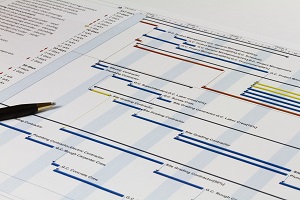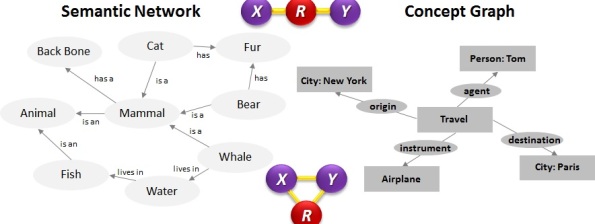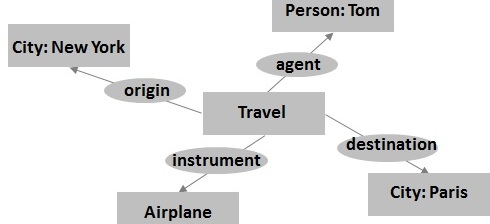Tag Archives: fuzzy logic
08 Feb Just In Time Knowledge

One of the beautiful things about the human brain is it’s adaptability: people can “change” their minds at the last minute based on the changing situation (context). This is not trivial, but I believe that it is one of the characteristics of human cognition that is relatively straightforward to mimic in computer programs and apps. In […]
23 Dec Visual Knowledge Dimensions

Visualizing knowledge in graphs and charts empowers decision makers by giving them actionable knowledge in understandable format. To make this most effective, the labels on the graph must provide clearly defined context cues that make it easy to interpret. Converging data strategies using Big Data (Hadoop, NoSQL, Cassandra, MapReduce…) can change the way we access content […]
10 Dec Measuring Knowledge

Sometimes you need to know about your knowledge. When you’re in the middle of trying to build a system that knows stuff, you may ask, how much does the system know after this training or learning cycle as a percent of the total knowable amount? When we test students in their learning cycles, we use a […]
26 Nov Planning and Scheming

Select a Knowledge Representation (KR) Scheme In prior posts I have been describing the steps of building knowledge systems. A major part of Step 3: Task 1 is defining how to store knowledge – selecting a scheme. Giarratano and Riley (1989) suggest making the selection of a scheme, such as rules, frames or logic, dependent upon […]
15 Nov Planning a Knowledge Project

Deliverables and the Business Case If you are a developer, a project manager, or a project sponsor of an expert system (Weiss 1984) or knowledge-based engineering project, it is very important to know early what the deliverables will be for everyone involved. Even in agile projects, where detailed requirements evolve through the course of development, […]
21 Oct Fuzzy Interconnectedness

Fuzzy and Interconnected Techniques Section 5 suggests that the software of cognition is very fuzzy and able to operate efficiently even without having complete or totally accurate information. We said that we want to replicate that flexibility. We spoke in Section 7 about different fuzzy approaches for representing and processing information. These approaches include artificial […]
17 Oct Neural Conceptual Dependency

Conceptual Dependency Much of this blog has been about knowledge representation: how the brain might learn and process it, how cognitive functions treat knowledge, and now, how computers may store and process it. Conceptual structures and conceptual dependency theories for computation have been useful for categorizing and representing knowledge in intuitively simple and cognitively consistent […]
14 Oct Knowledge in Non-Neural Models

Non-Neural Models So far we have examined a number of models that are explicitly designed to be neuromorphic. This categorization is useful for two reasons: the apparent chaos or non-deterministic functioning of the brain is represented by these models; and neural networks explicitly use large numbers of distributed processors or neurodes that each contribute to […]






